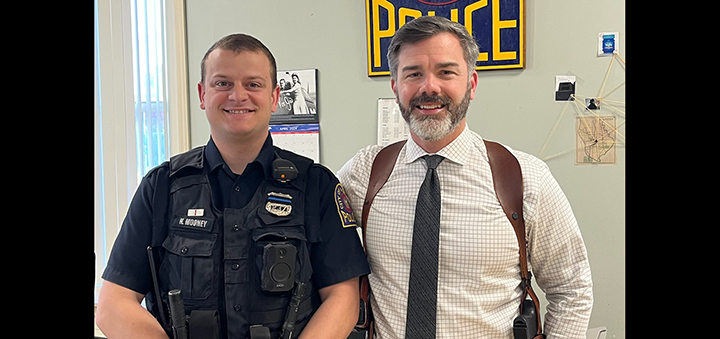Meanwhile, Not At Hobby Lobby
Published:
July 7th, 2014
By:
Ashley Babbitt
The Supreme Court decision recently garnered quite a bit of attention. I’m staying away from that one with a 77-mile pole.
There have been a number of decisions handed down by the Supreme Court recently haven’t received nearly as much attention. I spent hours this weekend reading hundreds of pages of court opinions and decisions, and most, if not all, were interesting or impactful.
• In 2010, a man took various controlled substances while on a drug binge, and died. Involved drugs weree Xanax, Klonipin, Oxycodone and heroin. The man who was arrested for selling one gram of heroin to the user was convicted, and because of mandatory minimum sentencing (a topic deserving of a column of its own), was sentenced to 20 years in prison.
Based on testimony from lower court appearances, doctors and medical examiners said they could not be sure as to whether or not the man would have lived if he had not used the heroin as there were a mixture of drugs in the man’s system.
The defendant’s appeal made it all the way to the Supreme Court, and after review, his conviction was reversed.
“We hold that, at least where use of the drug distributed by the defendant is not an independently sufficient cause of the victim’s death or serious bodily injury, a defendant cannot be liable under the penalty enhancement provision of 21 U. S. C. §841(b)(1)(C) unless such use is a but-for cause of the death or injury,” read the opinion of the court.
• “Every day of my life I live in constant fear that someone will see my pictures and recognize me and that I will be humiliated all over again. It hurts me to know someone is looking at them – at me – when I was just a little girl bring abused for the camera,” said a victim of child abuse and distribution of images of her throughout the internet.
“The full extent of this victim’s suffering is hard to grasp,” read the Supreme Court document. “Her abuser took away her childhood, her self-conception of her innocence, and her freedom from the kind of nightmares and memories that most others will never know.”
The petitioner to the Supreme Court was one of the individuals who possessed images of the victim. In 2009, he pleaded guilty in federal court to possession of material involving the sexual exploitation of children.
The victim asked for nearly $3.4 million in restitution from the defendant. A district court held that the government had “failed to meet its burden of proving what losses, if any, were proximately caused by” the man’s offenses.
Since the images are circulating the internet, it would be almost impossible to determine how much damage the one man in the case is responsible for. The victim said that through logic, each possessor of her images is a part of the whole, causing her the ongoing trauma.
The Supreme Court decided that victims should be compensated, and defendants held accountable for their actions. There were dissenting opinions of the justices – some stating that it is not possible to put a monetary amount on the man possessing two pictures of the victim.
Justice Roberts and Sotomayor dissented, and their responses are intriguing, but it’s too lengthy to discuss here. (Check out supremecourt.gov/opinions for the full opinion, Paroline v. United States).
• Riley v. California was a recently-decided Supreme Court case, where it was unanimously held that searches and seizures of digital contents of cell phones during an arrest is unlawful.
The court determined, “The police generally may not, without a warrant, search digital information on a cell phone seized from an individual who has been arrested.”
Various examples were laid out in the opinion of the court. In the case of the petitioner, David Riley, was stopped for driving with expired registration and without a license. Per department policy, the man’s car was impounded and inventoried. Weapons were located under the vehicle’s hood.
Riley’s person was searched by an officer “incident to the arrest,” and the man’s cell phone was seized from his pants pocket.
Essentially, the officer looked through Riley’s phone and found some text messages that led the officer to think the man was involved in a gang. A detective testified that he went through the man’s phone “looking for evidence, … because gang members will often video themselves with guns or take pictures of themselves with the guns.” Additionally, police found on the phone photos of Riley standing in front of a vehicle they suspected had been involved in a shooting weeks prior.
Riley was then charged in connection with that shooting – including an attempted murder charge.
In another case, a man was arrested for allegedly selling drugs. While at the station, the man’s phone continued to ring, and all calls were coming from a contact in the phone named “my house.” Police then opened the phone, located the number, did a reverse phone number search, located the address, went to the residence where police located drugs, and seized 215 grams of crack cocaine, among other things.
Riley argued that the contents of a cell phone do not threaten the safety of police officers (one reason an officer would not need a warrant to search a person or the area in his/her immediate reach).
A law professor from Stanford, Jeffrey Fisher, said to the court on behalf of Riley that searches of cell phone contents could open, “every American's entire life to the police department, not just at the scene, but later at the station house and downloaded into their computer forever.”
Basically, the court decided that a warrant is required to search the contents of a cell phone. An officer may ask to examine a cell phone to check to make sure a weapon (such as a razor blade) is not hidden between the case and phone), but the police are not permitted to search through the phone unless a warrant is issued.
Chief Justice Roberts said, “Modern cell phones are not just another technological convenience. With all they contain and all they may reveal, they hold for many Americans “the privacies of life". The fact that technology now allows an individual to carry such information in his hand does not make the information any less worthy of the protection for which the Founders fought.”
What I’m trying to say is that decisions from the Supreme Court are handed down that impact the lives of Americans all the time. You want to fuss over just one? Fine. I’d prefer to spend my weekend reading about a whole bunch so I know where I stand across the board.
Author: Ashley Babbitt - More From This Author
Comments







